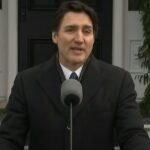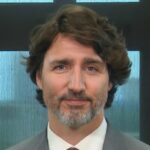Blog Post
Australia’s stunning election upset may signal bad news for Justin Trudeau
By Jonathon Van Maren
After Australia’s stunning election last weekend, Bloomberg was blunt. “The New Right Is Beating the New Left,” read the headline. “Everywhere.” Prime Minister Scott Morrison, an evangelical Christian, was expected to get destroyed in a landslide that would sweep his Liberal-National Coalition from power. Every pollster predicted it, and every left-wing elitist salivated for a victory that would allow Labour leader Bill Shorten to get to work making Australia a less-terrible place.
Bill Shorten’s Labour Party ran on a platform that was two parts left-wing radicalism, one part condescension. From Nick Cater over at Spiked:
Labor’s policies, designed to restore Australia’s virtue, are peppered through a policy document that runs to 309 pages. Labor would hold a referendum to become a republic and rid ourselves of the embarrassment of a colonial queen. Centuries of racial exclusion would be ended by guaranteeing one race – indigenous Australians – seats in parliament.
The failings of Australia’s so-called non-discriminatory immigration policy would be fixed by discriminating between LGBTI asylum seekers and the boringly straight. Refugee status would be automatically granted to those whose stated sexual preference was illegal in their home country with or without evidence of actual sexual activity or actual persecution.
Australia’s biggest export, coal, was blackening our reputation and the size of Australia’s carbon footprint was a national disgrace. Labor would set an emissions target three times more onerous than that required by the Paris Agreement, but could not say how much it would cost. Australia’s highly progressive tax system wasn’t progressive enough. Labor would embark on a massive redistribution programme to address intergenerational equality and other socioeconomic injustices.
In other words, Shorten’s agenda resembled that of Bernie Sanders, Alexandria Ocasio-Cortez, Justin Trudeau, and a raft of other progressive elites who are so patriotic that they believe their countries need to be utterly destroyed in order for them to be worth living in. But just as with the election of Donald Trump and Brexit, it turned out that many Australians weren’t actually looking for an overhaul of their entire country:
At its core, Saturday’s election was a contest between two tribes. One consists of those who identify themselves principally by the place in which they live and shared social values. The other defines itself by its allegiance to international causes and the presumption that the global educated class knows better than the rest.
[Scott] Morrison represented the Somewheres, as David Goodhart christened them, while Shorten was the Anywhere man, harvesting grievances, no matter how small, and turning them into monumental issues of social injustice that made us an outlier in a progressive-minded world community.
Support for Shorten’s platform bordered on the fanatical among the university-educated professionals whose influence appears to grow deeper at every election. For doctors, teachers, academics and other professionals who rely wholly or in part on government largesse for their income, the new progressive dawn heralded by Shorten couldn’t come soon enough.
The renewable-energy sector feared the return of a conservative government pledged to end the subsidies which made up most, if not all, of its profits. Shorten’s 50 per cent renewable-energy target would provide its meal ticket for a decade at least. Labor’s plan to adopt a Norwegian-style electric-vehicle plan opened up new avenues of rent-seeking, each one lined with charging stations paid for at the taxpayer’s expense.
There was widespread acclaim in the media of course, particularly by the public broadcasters who are ipso-facto members of the rent-seeking class. The ABC’s claims of impartiality were undermined by its supporters, the Friends of the ABC, who manned polling stations with printed instructions to voters to put the conservative barbarians last on their numbered preferential voting paper.
The misty-eyed delusion that Labor would win on Saturday night spared almost no one in polite society. Pollsters came to assume that respondents were telling them the truth and that those who refused their calls were a representative cross-section of the population, rather than world-weary outsiders who had come to assume their views would be ignored and couldn’t be faffed to play the insiders’ game.
Betting companies fell for the delusion, too, assuming that the big money placed on a Labor victory was a guide to a wider sentiment. A week from the election, Morrison was the 7-1 outsider. Two days before the election, SportsBet paid out on a Labor win.
The script for election night would be familiar to those who followed the Brexit referendum count or the US presidential election. It began with confident, smiling faces on ABC TV. Early results from election booths were discounted as outliers. But as the percentage of votes counted rose and the trend continued, their faces began to tighten and the silences grew longer.
The resident psephologist began grumbling about glitches in the Australian Electoral Commission’s computer. The air was visibly sucked out of the wrinkled face of Barrie Cassidy, a senior ABC political presenter and former adviser to Labor prime minister Bob Hawke. By the end of the night, he was as expressionless as a punctured football.
The results unleashed a torrent of self-righteous and self-pitying national self-loathing. ‘It’s not Morrison, it’s not the Liberals, it’s not the policies, it’s not Queensland, it’s not Dutton. It’s the country that’s rotten’, wrote Guardian Australia columnist Brigid Delaney, summarising the feeling of the people in the room at what was supposed to be Labor’s election night party: ‘The fact that their vision for Australia’s future was not affirmed made them feel estranged and alienated from their own country.’
The now-familiar (but still invigorating) anger of the jilted elites immediately erupted across social media, provoking much hilarity for everyone else. When I asked one of my Australian friends what her take on the election was, she responded thusly: “We narrowly avoided becoming like Venezuela. But the ‘conservatives’ are far from conservative.”
And that is also true: This victory is only considered a blow for the hardline right-wing because the progressives have shifted so radically to the Left. It is sort of like accusing Andrew Scheer’s Conservative Party or Theresa May’s Tories of being hardcore right-wingers: Many of us wish that were true, but not many people are buying it. These conservatives have put up virtually no resistance on any of the major cultural and political debates of the last fifty years, and in many cases (like Stephen Harper’s) have left paltry legacies easily levelled by the incoming progressives. They are toothless and mediocre, which is why voters don’t buy the foaming fear-mongering fomented by the Left.
But the defeat of Australia’s Labour Party may be a good omen for Canadian conservatives in one way. Australians, it appears, were fed up with the constant virtue-signalling and lecturing coming from the progressives who wanted to rule them but didn’t appear to like them very much. All signs thus far seem to indicate that Justin Trudeau’s charm has definitively worn off, too, and that Canadians are sick of his apologies (for things our ancestors did, but never for something he did, like groping a young female reporter), his embarrassing costume fetish, his “peoplekind” comments, his ludicrous pretence that the Conservative Party is tightly-packed loony bin of white supremacists. People like their leaders to be sunny and attractive, but the moment they appear to believe they have been elected to the role of hectoring scold and decide to put on airs, voters get fed up very quickly.









That’s all great..And they won by how much? Percentage of the vote was…?
IMO this is great news 🙂 Do they like Canadians? I sure hope so, Australia is my favorite place in the world and looks like the perfect extended vacation destination if jt is re-elected over here.